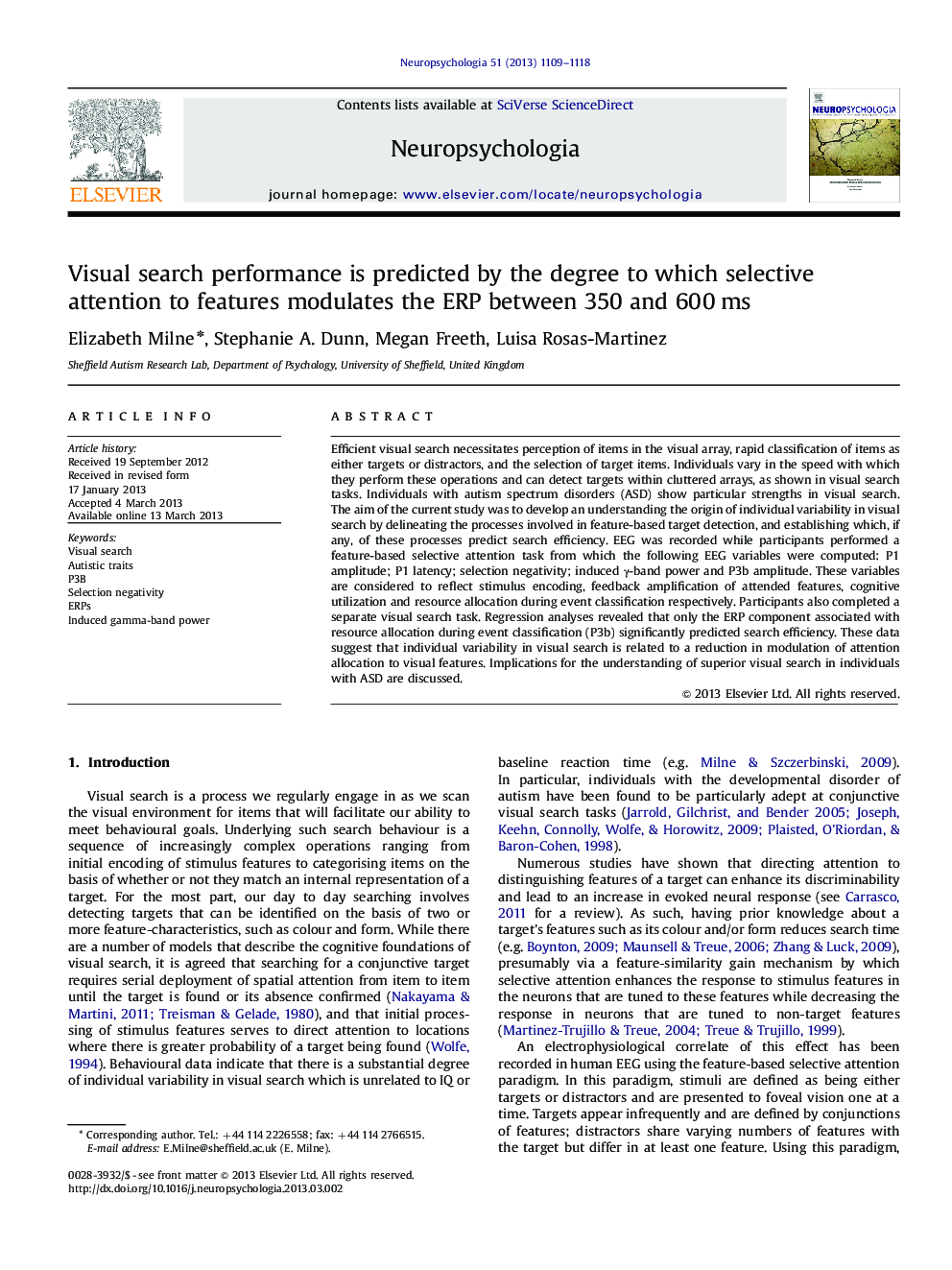| Article ID | Journal | Published Year | Pages | File Type |
|---|---|---|---|---|
| 944825 | Neuropsychologia | 2013 | 10 Pages |
Efficient visual search necessitates perception of items in the visual array, rapid classification of items as either targets or distractors, and the selection of target items. Individuals vary in the speed with which they perform these operations and can detect targets within cluttered arrays, as shown in visual search tasks. Individuals with autism spectrum disorders (ASD) show particular strengths in visual search. The aim of the current study was to develop an understanding the origin of individual variability in visual search by delineating the processes involved in feature-based target detection, and establishing which, if any, of these processes predict search efficiency. EEG was recorded while participants performed a feature-based selective attention task from which the following EEG variables were computed: P1 amplitude; P1 latency; selection negativity; induced γ-band power and P3b amplitude. These variables are considered to reflect stimulus encoding, feedback amplification of attended features, cognitive utilization and resource allocation during event classification respectively. Participants also completed a separate visual search task. Regression analyses revealed that only the ERP component associated with resource allocation during event classification (P3b) significantly predicted search efficiency. These data suggest that individual variability in visual search is related to a reduction in modulation of attention allocation to visual features. Implications for the understanding of superior visual search in individuals with ASD are discussed.
► Feature-based attention was explored in individuals with varying autistic traits. ► Participants also completed a separate conjunctive visual search task. ► More autistic traits were associated with efficient search and reduced P3b modulation. ► P3b modulation predicted 30% of the variance in visual search performance. ► Individual differences in visual search are associated with feature-based attention.
